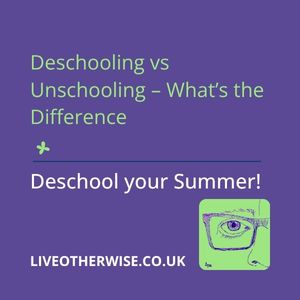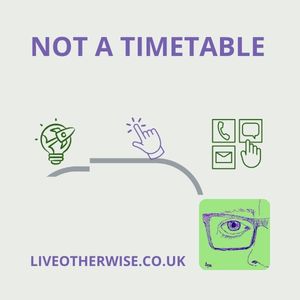Your basket is currently empty!
News: Dept of Education official fails to understand concept of average
This isn’t really news, because it’s not new. It seems to be fairly endemic throughout all levels of government. For example, this wonderful exchange between the Chairman of the Select Committee and the then Education Secretary, Michael Gove.
Q98 Chair: One is: if “good” requires pupil performance to exceed the national average, and if all schools must be good, how is this mathematically possible?
Michael Gove: By getting better all the time.
Q99 Chair: So it is possible, is it?
Michael Gove: It is possible to get better all the time.
Q100 Chair: Were you better at literacy than numeracy, Secretary of State?
Michael Gove: I cannot remember.
(source)
But it’s not Michael Gove in my crosshairs today. Not even a stray health visitor or midwife. No, it’s Ofsted and the Department of Education together who have come up with a jolly wheeze. They want to make it easier for schools to ‘recruit’ two year olds by changing the regulations around inspection.
From that article:
A Department for Education spokesman said: “No child should start school behind their peers. This is why as part of our plan for education we are committed to providing flexible, affordable and good quality childcare, giving parents real choice.
Oh dear. Oh very dear. Let’s look at that closely shall we?
“No child should start school behind their peers.”
We’ll assume that he means age peers, or the sentence has no meaning whatsoever. So if we go into it closely, what could he mean?
There are a number of useful skills for a school based education. Remember that this usually starts at age 4 in this country, even though the legally required education start age is actually the term after the 5th birthday. What should our 4 year olds be able to do? Sit, listen? Put on their own coat, dress and undress themselves? Hold a pencil, make marks, turn the pages of a book? Hold a conversation? All of those skills will be acquired by children slightly differently. Some earlier, some later. And some children won’t have all of them by age 4.
It’s a normal distribution type of thing. (Stay with me.)
Basically, lots of things, when plotted on a graph, come out in this shape.
On this graph, the different kinds of average, mean, median and mode are all at the same place – the top of the curve. It works well if you think about average height. Most people (mode) are in the middle (median) of the range (and you get the mean by adding up all the heights and dividing by the number of people).
Still with me? Personally I find the maths stuff fascinating, but I’m aware lots of people don’t. If you want to learn more about the distribution, this is good. The important thing though, is to remember it’s a range. So if we go back to the height idea, while *most* people will be around the average, there are also lots of people who are smaller, and lots of people who are taller. And a few people who are *very* small, and a few people who are *very* tall. That’s what gives the graph that great curve.
You can’t force all children to be at least average height. And you can’t force all of them to be of at least average skills. *Any* government suggestion that you can needs to be laughed at, loudly.
BUT there are some caveats. If you’re talking about height, for example, it is possible that some children aren’t reaching the height they could, because they’re malnourished. The answer is to make sure they’ve got access to good food.
And if we look back at when this idea of getting two year olds into schools was floated last year (independent), we find that the suggestion is to eradicate the effects of poverty on their performance.
Here’s a novel idea. Instead of throwing money at the effects of poverty, and coming up with solutions that won’t help, why don’t we address the causes of poverty? Just a thought. (*cough* basic income *cough*) I’m going to be writing more on that very soon, but I think this article is quite long enough already!
Home Ed Inspiration, Ideas, and Activities
Click the links below and scroll through my collection of ideas, workshops, excursions, and more to discover practical everyday activities you can do together in and around your home classroom.
Comments
8 responses to “News: Dept of Education official fails to understand concept of average”

I am right with you (even through the maths!). I particularly loved the quoted exchange at the start – a fabulously comical *head-desk* moment, were it not for the fact that Gove was Secretary of Education at the time.

I know, that is particularly terrifying. Just loved the response from the Chairman though.

It surprise you to know that I grew up in the 70’s, in what might be considered poverty – certainly very much on the bread line! But that didn’t stop me achieving ~ 8 GCSE’s @ grades A-C, 2 A levels @ grades B & C, a DipHE and a BSc(hons). What took me out of the poverty trap was a positive mindset and a determination to go as far as I wanted with my education. I was encouraged from home and from others who knew and loved me. Poverty was not really a problem in and of itself – neither it’s cause, nor it’s lack of solution (my Mum still lives on the bread line) played a role in my achievements. Personally I believe the biggest cause of lack of achievement – in or out of school – is not poverty, but lack of self belief, self-worth, or positive encouragement to do well – all deep rooted from home; it’s a ‘don’t care’ attitude that some children are often raised with, and a moral belief that it’s perfectly acceptable not to study and/or work. I might add that these attitudes are not exclusive to the impoverished in our country, but also quite rife among the rich and privileged!
Don’t get me wrong I ABSOLUTELY disagree with compulsory schooling pre-5 (and would really like to see school age raised to 7), but I think it’s self-worth and positive thinking that need to be equipped with – more than anything else imho. Poverty does not HAVE to be a trap! For those children being raised in families that don’t teach them to believe that they are able and valuable, PERHAPS a loving nursery/school environment is beneficial to them – both poor and wealthy alike!
I loved this post. If the children are living in poverty it would suggest that the mother (in most cases) isn’t working. Why take the child away from the mother for the state to nurture? As the previous comment pointed out, it’s not poverty alone that disadvantages a child, it’s the attitude (or ignorance) of the parents. What about day centres for mothers and preschoolers where they can experience living/cooking/food shopping/educating in a community and receive a wage for including other children who’s mothers do have paid employment and need free childcare?

Sadly there has been quite an increase in poverty in working families. I do like your suggestion though, and I think some aspects of that were addressed by children’s centres doing stay and play or guided play sessions. No pay though.

*whose not who’s

😉

I love the idea posed by Singlemum, although I believe that’s what ‘family centres’ aim(ed) to provide to some extent. However, they probably they don’t quite go far enough in helping to teach practical skills, and are (I believe) often predominantly accessed by families in lower socio-economic groups. This might be because more ‘middle-class’ families don’t believe themselves to be so lacking in parenting skills. In reality, I believe this to be a mis-conception and wealthy, middle-class and the poor alike ~ we are mostly just muddling along, doing the best we possible can for our children, to the best of our knowledge, skills and ability – and some of us are ‘better’ at some aspects of parenting than others. That’s just life!
Of course, there are parents who are not choosing to do the best they can by their children, and that is of course very sad, but those parents are not exclusive to the poorer ends of society! Sending those children to school at 2 years old is not necessarily going help the child, or the parents – and is certainly not going to encourage any love-bond or trust between them. FAR better that the parents are supported to become better at their job of parenting, than to be absolved of that responsibility by removing the child from their care for 8 hours a day. Yes, it might be beneficial to the child in SOME ways, SOMEtimes, but it cannot be seen as a solution to a problem … surely, it is more akin to turning a blind eye to the real need!
Just as a point ~ it’s not like it’s not been tried before…
In years gone by it was possible to send a child ‘away to school’ from toddler-hood. Those children might well have done very well academically ~ with little or no ‘interference’ from home ~ but I cannot think that they grew up knowing they were loved, cherished or even wanted! And I can’t believe they had much of a sense of family-love and belonging. In my mind, I think perhaps their self-worth was mostly attained through academic achievement, monetary gain and promotion in the work-place. What a sad place to be – where all your worth is in your wallet, or hung on a wall.
Personally, this is NOT the kind of self-worth I want my children to have. Far rather they are cherished on my knee for as long as they are willing and happy to stay there ~ and then that I can help them find their way in the world with a loving hand at their back 😀





Leave a Reply